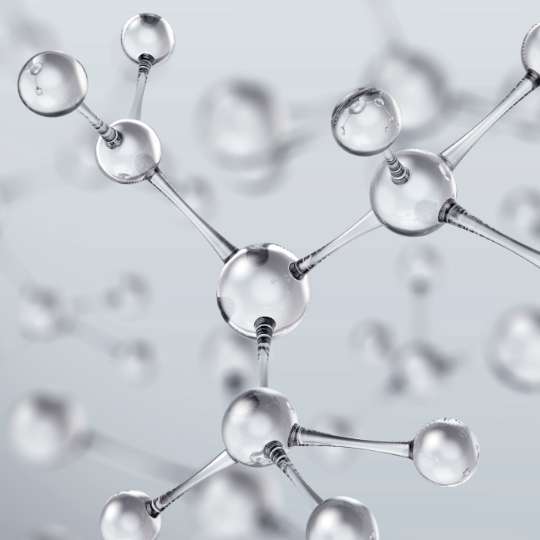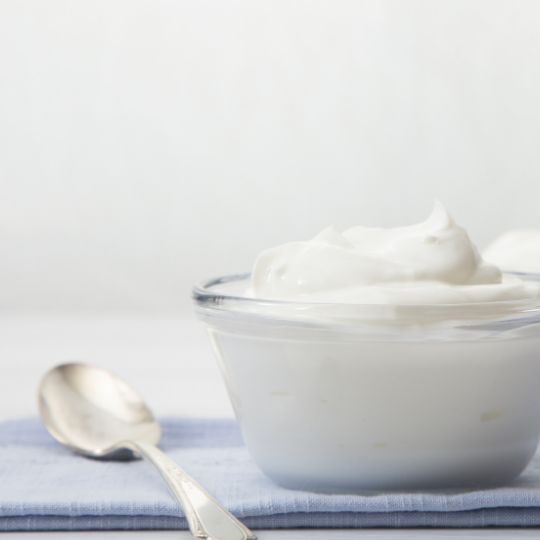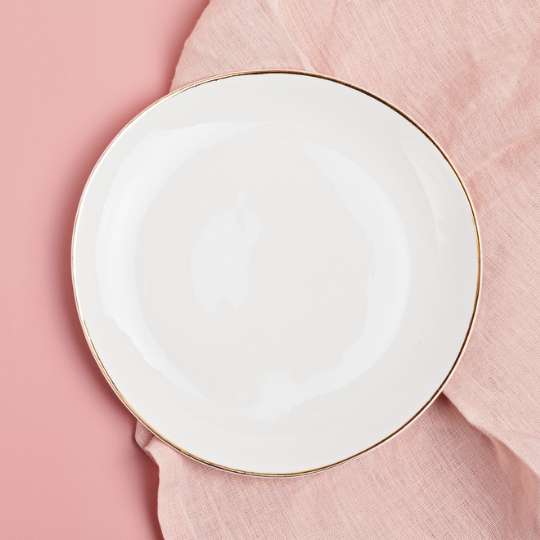

What are supplements?
Supplements are designed to do just what the name suggests. They’re there to supplement, or fill in, any gaps in your diet to ensure your body is getting everything it needs to function at its best. Depending on the exact supplements you choose, they will contain elements such as vitamins and minerals. It is crucial to establish early on that supplements, no matter how many you're taking, are not a substitute for a healthy, balanced diet. They are merely an accessory to this, so think of them as an added extra. They’re the side order, not the main meal.
Why do we need supplements?
“In an ideal world it would be great to get everything from food,” explains Shabir Daya, pharmacist and co-founder of Victoria Health. “But unfortunately these days we have a lot happening. We have modern agricultural practices where our foods are devoid of nutrients, and we have the pressures of things like soybean crops for example where the same plant is being grown over and over again.” The way we eat is not as simple as it once was, with more steps (and airmiles) than ever between the food being grown and making its way to our plates.
There is also the question of recommended daily allowances, and whether they truly reflect how much of particular nutrients our bodies actually need. “For example vitamin C was set at 30mg, which was only to prevent scurvy,” says Shabir. “Now we know that in actual fact the body needs much more than 30mg.”
“Look at what happened to vitamin D. We were told we were getting enough vitamin D before a sudden U-turn and now we’re being told we need to ingest more – especially during the winter months. It is an ongoing thing.”
Stress also has an impact on our ability to make the most of the food we eat. “Stress affects digestion, and poor digestion means less absorption and not getting enough nutrients,” says Shabir. “There are many factors that impact the availability of nutrients from food.
So, invariably, we should be thinking about supplementation somewhere along the line.” If we are what we eat, then it’s clear why we may feel lacking in terms of mental and physical health.
Which supplements should I be taking?
The following list is a guide, and is not exhaustive, nor will everyone need to take everything on it. Consider it a starting point, and always check in with your doctor before taking any supplements.
A multivitamin
Best for: all-round health
As with all things, it’s important to lay the foundations before you start to build on them. Most of us are familiar with multivitamins, but be honest, how often do you remember to take yours? Commiting to this first step is a great place to start in order to help your body get everything it needs. “Everyone needs a quality multivitamin,” says Shabir. “Think of it as your insurance product in that you might never need it, but what you are doing is making sure that you’re giving your body all the vitamins it requires in a 24-hour period.”
Probiotics
Best for: gut health
Probiotics is a word we hear often, but do you fully understand the role they play in our bodies? “Probiotics are the friendly bacteria in your gut,” explains Shabir. There are more than 300 species of bacteria in the gut, and unfortunately we tend to knock them out quite regularly. Processed foods, preservatives on goods, vegetables that have been sprayed chemically – these factors can destroy the bacteria in our gut so we need to replenish them from time to time.” It's a balancing act, and with less friendly bacteria in play, our immunity and digestion can suffer.
“80% of our immunity comes from the gut,” continues Shabir. “There are very specific strains of bacteria that work to produce tiny proteins called immunoglobulins which send signals for white blood cell counts to rise.” With the gut working at its optimum, your body is ready and raring to defend itself against any pathogens or viruses it encounters.
The digestive process as a whole relies heavily on probiotics too. “Probiotics are involved in the last stage of digestion. Your stomach enzymes break down the individual groups, like proteins and carbohydrates, and then the last stage in the colon is through the probiotics.”
“As we age, our guts get damaged from all the inflammation that arises as a result of both metabolism and the acid that’s constantly going through there. We then produce less digestive enzymes, which means we’re not digesting our food as efficiently. So at least if we’ve got probiotics, they’re going to be involved in some form of digestion.”
Turmeric
Best for: calming inflammation
Inflammation can take a variety of different forms, from inflamed skin to inflamed joints. Turmeric, and curcumin, the component within it, can help to reduce this.
“Curcumin is the active component in turmeric powder,” explains Shabir. “Lots of research is being done on curcumin because it has very powerful antioxidant properties, and if you’ve got very powerful antioxidants in your body then you’re going to protect your cells and your genetic material.” In an ideal world, we should all be talking about curcumin, but you’ll really notice the benefits as you travel down the path of life. “Remember, inflammation is the most widely accepted theory of ageing,” adds Shabir. “And I don’t just mean skin ageing, but everything across the board.”
Sage
Best for: relieving menopause symptoms
During perimenopause and menopause, levels of oestrogen within the body start to deplete. It is at this time that many people decide to begin hormone replacement therapy, or HRT, in order to restore and maintain these levels. “If women don’t want to go down the HRT route, they can go down the alternative route which is phytoestrogens,” says Shabir. This includes herbs like sage. “They are chemically similar, and try to fool the body into thinking it’s getting sufficient hormones, when it really isn’t. But, you are preventing the possibility of hot flushes, night sweats and all the other problems that arise.”
Remember, hormones are the puppeteers pulling the strings behind the scenes, and can impact all areas of our lives. “Hormones affect your adrenals, so you could end up with low energy, low mood. They could also affect your thyroid which might eventually mean you put on more weight as you go through the menopause and beyond. Therefore having the right balance of female hormones is important, and phytoestrogens simply mimic the female hormones.”
Magnolia rhodiola
Best for: relaxation
During times of stress, it’s not just our thoughts that go into overdrive, but our bodies too. “When you have any form of stress, whether it’s physical, emotive or hormonal, the first glands that are affected are the adrenals. They start over-producing cortisol, the stress hormone, and you end up experiencing low moods as it impedes the uptake of serotonin (the happy hormone) by the brain.”
This then has a knock-on effect. “Because the adrenals are producing all these stress hormones, such as cortisol, they don’t produce sufficient adrenalin, so you also end up with fatigue or tiredness. And then with that you have an inability to concentrate because cortisol is inflammatory and tends to impede the signals in the brain for proper nerve function.”
“Magnolia extracts work to reduce cortisol levels in the body and physically relax muscles and nerves. Rhodiola works to enhance energy and increase serotonin uptake.” This two-pronged approach works beautifully, helping to level out stress so you feel relaxed yet energised.
Vitamin B
Best for: coping with stress
As we have already discussed, during times of stress, our adrenals are in fight mode, producing stress hormones including cortisol. “B vitamins are anti-stress and energy vitamins. They’re involved in a multitude of processes, such as getting rid of toxins.” They also have a part to play in the gut too, and can be manufactured by probiotics. “The demand for B vitamins at times of stress is very high, and often people with stress have low vitamin B levels. So you might want to introduce a high quality B vitamin to support the adrenals.” You could take this ongoing, or consider adding it in during difficult periods.
Read, watch and be inspired...



